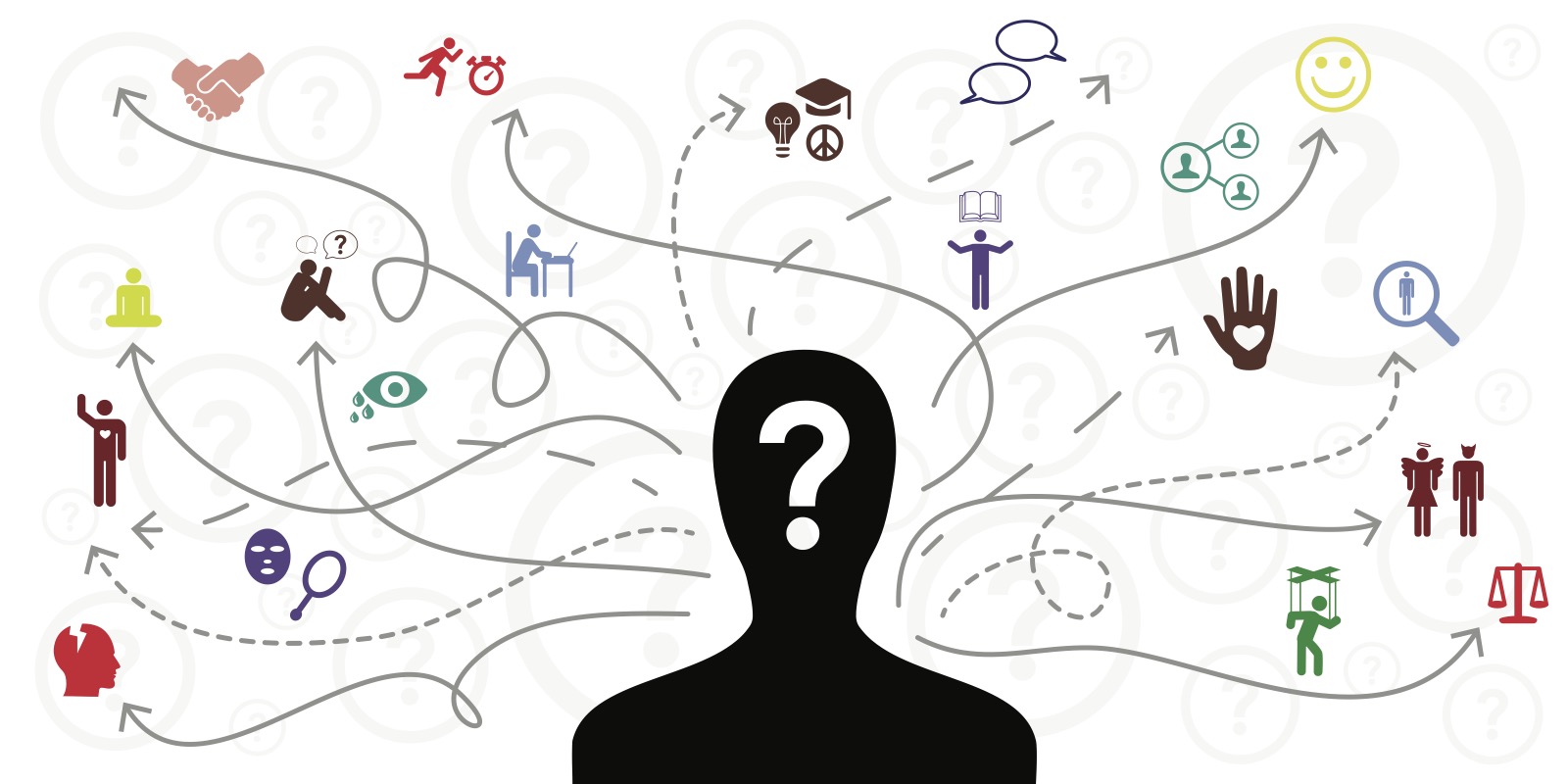Unlike other psychological approaches that delve into the inner workings of the mind behavioral psychology places its emphasis on external factors that shape human actions. Behavioral psychology a prominent branch of psychology has undoubtedly left a significant mark on the field offering valuable insights into human behavior. However like any scientific discipline it hasn’t been immune to critiques and controversies. In this article we will delve into these critiques addressing concerns such as oversimplification and the neglect of internal mental processes. In the realm of psychology behavioral psychology stands out as a fascinating branch that explores the intricacies of observable behaviors and their relationship with the external environment. Unlike its counterparts, which delve into the inner workings of the mind behavioral psychology places its primary focus on the external factors that mold human actions. While this field has undeniably made substantial contributions to our understanding of human behavior.
The Pioneers of Behavioral Psychology

Behavioral psychology owes its origins to eminent psychologists such as John B. Watson and B.F. Skinner. These pioneers laid the foundation for understanding how behaviours are acquired and modified through various processes. Behavioral psychology emerged in the early 20th century as a reaction to the prevailing introspective and psychoanalytic approaches to psychology. Watson and Skinner dissatisfied with the lack of scientific rigour in these approaches championed a new perspective – one that emphasized the study of observable behaviour rather than the hidden recesses of the mind.
While Watson and Skinner were making strides in behaviorism Ivan Pavlov was making waves in classical conditioning. His experiments with dogs showed that behaviours could be associated with specific stimuli laying the groundwork for understanding learned responses. Behaviorism’s dominance in psychology eventually gave way to the rise of cognitive psychology, which shifted the focus to mental processes. However behaviourism’s contributions to psychology remain vital especially in areas such as learning theory and therapy.
Key Concepts in Behavioral Psychology

Classical conditioning, as proposed by Ivan Pavlov, explores how associations between stimuli and responses can lead to conditioned behaviour. This concept is at the heart of many behavioral experiments and therapies. Classical conditioning had its origins in the late 19th century when Russian physiologist Ivan Pavlov conducted groundbreaking experiments with dogs. His research sought to understand how animals and humans learn to associate one stimulus with another.Pavlov’s most famous experiments involved ringing a bell before feeding dogs.
Initially, the dogs naturally salivated when presented with food. However after repeated pairings of the bell with food the dogs began to salivate at the mere sound of the bell, even in the absence of food This fundamental experiment laid the foundation for classical conditioning.Classical conditioning principles are widely applied in behavioral therapy. Therapists use systematic desensitisation to help individuals overcome phobias or anxiety disorders. By gradually exposing patients to the feared stimulus in a controlled manner, they can change the conditioned response from fear to calmness.
Operant Conditioning

B.F. Skinner introduced operant conditioning which centers on the idea that behaviour can be strengthened or weakened based on their consequences. Positive reinforcement negative reinforcement and punishment are key components of this theory. Operant conditioning is a psychological theory developed by B.F.
Skinner in the mid-20th century. Unlike classical conditioning which focuses on involuntary responses to stimuli operant conditioning centers on voluntary behaviour and how they are shaped by consequences. At the heart of operant conditioning is the idea that behaviour are influenced by their outcomes. Skinner argued that behavior can be modified through rewards and punishments, which can either strengthen or weaken a particular behavior. Positive reinforcement is a fundamental concept in operant conditioning. It involves providing a reward or positive consequence immediately after a desired behavior occurs
Observational Learning

Albert Bandura’s theory of observational learning highlights how individuals can acquire new behaviors by observing others. This concept has significant implications in education and social learning. Observational learning, as theorized by Albert Bandura suggests that people can learn new behaviors, attitudes or information by simply watching others. This process does not require direct physical involvement or reinforcement instead it relies on the cognitive processes of attention retention reproduction, and motivation.
For effective learning the observer must focus on the model’s actions and behavior. Factors like the model’s attractiveness expertise and relevance play a crucial role in capturing the observer’s attention. Observational learning also depends on motivation. Individuals are more likely to imitate behaviors they find rewarding or believe will lead to positive outcomes. Conversely they may avoid behaviors associated with negative consequences.
The Influence of Environment on Behavior

Behavioral psychologists stress the importance of the environment in shaping human behavior. Our surroundings, upbringing and experiences all play pivotal roles in determining our actions and reactions. Behavioral psychology often referred to as behaviorism focuses on observable behaviors and how they are acquired and modified through experiences. This approach posits that our actions are not merely a result.
of innate traits but are significantly influenced by external factors.One of the central debates within psychology revolves around the influence of genetics (nature) versus the environment (nurture) in shaping human behavior. While genetics certainly contribute to our disposition,It is the environment that molds these inherent tendencies into actual behaviors. Albert Bandura’s social learning theory emphasizes the role of observation and imitation in human behavior. We learn by watching others and adjusting our actions based on the outcomes we observe.
The Nature vs Nurture Debate

A perennial debate in psychology revolves around the relative contributions of genetics (nature) and the environment (nurture) to behavior. Behavioral psychology leans towards the nurture side, emphasizing environmental factors. Genetic determinism is the belief that our genes play a pivotal role in shaping who we are. Certain behaviors and traits are thought to be hardwired into our DNA influencing our actions from birth.
Twin studies which involve comparing the behavior of identical and fraternal twins have provided compelling evidence for the genetic influence on various traits such as intelligence and personality.Increasingly psychologists are adopting an internationalist approach which acknowledges that both nature and nurture interact to shape behavior. This perspective recognizes that genetics may predispose individuals to certain behaviors, but environmental factors ultimately determine the outcome. Behavioral psychology places a strong emphasis on the nurture side of the debate. It
Behavior Modification

Positive reinforcement plays a vital role in the field of education. Teachers often use it to motivate students to participate in class complete assignments, and excel academically. For example, offering praise or small rewards for completing homework can boost a student’s motivation and work ethic.Parents frequently employ positive reinforcement techniques to encourage good behavior in their children.
Simple rewards like extra playtime or small treats can be powerful tools in shaping a child’s conduct promoting positive habits, and discouraging undesirable ones. Positive reinforcement is a fundamental aspect of behavioral conditioning, a concept developed by renowned psychologist B.F. Skinner. Skinner’s experiments with animals, particularly pigeons and rats, demonstrated how consistent rewards could shape and modify behavior over time.
Behavioral Psychology in Education

Understanding how students learn and adapt to their surroundings is vital in educational settings. Behavioral psychology provides valuable insights for educators to enhance teaching methods. Behavioral psychology also known as behaviorism, is a psychological approach that focuses on observable behaviors and the influence of the environment on those behaviors. It emerged as a reaction to the more introspective and less quantifiable aspects of earlier psychological theories. Key figures in the development of behaviorism include John B.
Watson and B.F. Skinner. One of the fundamental principles of behavioral psychology is that behavior is a product of the environment. In educational settings, this means that a student’s behavior, such as their study habits and classroom conduct, can be shaped and modified by altering their environment.Now that we’ve established the foundations of behavioral psychology let’s explore how educators can apply these principles to create more effective teaching methods and promote better learning outcomes.
The Role of Reinforcement

Reinforcement whether positive or negative, plays a critical role in shaping behaviors. Recognizing how reinforcement works is essential in behavioral psychology. Positive reinforcement involves rewarding desired behaviors to increase their frequency. It’s like giving a gold star to a child for completing their homework on time.On the other hand negative reinforcement is about removing an aversive stimulus to encourage a behavior.
For example if you wear a seat belt to stop the annoying car alarm you are negatively reinforced.This theory pioneered by Ivan Pavlov explores how associations are formed between stimuli and responses. It’s the foundation of many psychological experiments.Parents often use a combination of positive and negative reinforcement to guide their children’s behavior. Rewards and timeouts are common tools.
Understanding Addiction from a Behavioral Perspective

Addiction is a complex issue and behavioral psychology helps in comprehending the behavioral patterns that underlie addiction and substance abuse.Addiction is not just about succumbing to temptations it’s a multifaceted problem deeply rooted in our psychology.
At its core addiction is characterized by compulsive behavior despite adverse consequences. Individuals with addiction often find themselves trapped in a cycle of cravings substance use and negative outcomes.One of the key aspects of addiction that behavioral psychology focuses on is the brain’s reward system. When someone engages in addictive behavior the brain’s reward pathways are activated. This leads to the release of dopamine, a neurotransmitter associated with pleasure and reinforcement.
Behavioral Economics

This interdisciplinary field explores how psychological factors influence economic decision-making, shedding light on why people make certain financial choices.Our journey begins by acknowledging the complexity of the human mind. Decisions regarding money are rarely straightforward; they involve a multitude of factors, both conscious and subconscious.One of the primary drivers of financial decision-making is cognitive biases.
These mental shortcuts often lead us astray. For instance, confirmation bias causes us to seek information that confirms our pre-existing beliefs, while the anchoring bias makes us rely too heavily on the first piece of information we receive. Behavioral economics, a field born from the collaboration between psychology and economics, investigates these psychological elements in depth. Prominent scholars like Daniel Kahneman and Richard Thaler have made significant contributions to this discipline.
Ethical Considerations in Behavioral Research

As with any scientific discipline, ethical considerations are paramount in behavioral psychology research to ensure the well-being of participants.Ethical research in behavioral psychology is characterized by its adherence to a set of principles that prioritize respect, beneficence, and justice. Researchers must navigate a complex landscape, balancing the pursuit of knowledge with the protection of participants.
The evolution of ethical standards in behavioral research has been marked by significant milestones, driven by a growing awareness of the need to address ethical dilemmas. Notable events, such as the Nuremberg Trials and the Tuskegee Syphilis Study, have shaped contemporary ethical guidelines.Protecting the privacy and confidentiality of research participants is another critical ethical consideration. Participants have the right to expect that their personal information and data will be handled with discretion.
Critiques and Controversies in Behavioral Psychology

While behavioral psychology has made significant contributions to the field of psychology, it has also faced criticisms and controversies. These include concerns about oversimplification and the neglect of internal mental processes. Behavioral psychology, a prominent branch of psychology, has undoubtedly left a significant mark on the field, offering valuable insights into human behavior. However, like any scientific discipline.
it hasn’t been immune to critiques and controversies. In this article, we will delve into these critiques, addressing concerns such as oversimplification and the neglect of internal mental processes.Before we explore the criticisms, it’s essential to understand what behavioral psychology is and its core principles. \This approach has led to groundbreaking discoveries in areas such as conditioning, reinforcement, and behavior modification.
Summary
In conclusion, behavioral psychology continues to evolve and adapt to our understanding of human behavior. Its practical applications in therapy, education, and various other domains make it a relevant and influential branch of psychology.
(FAQs)
Is behavioral psychology only about studying animal behavior?
No, behavioral psychology encompasses the study of both animal and human behavior, with a focus on observable actions and responses.
How can I apply behavioral psychology principles in my daily life?
You can use behavioral techniques to modify your habits, set goals, and improve your overall well-being.
What are the criticisms of behavioral psychology?
Some critics argue that behavioral psychology oversimplifies human behavior and neglects internal cognitive processes.
Is behavioral therapy effective for all psychological disorders?
Behavioral therapy is effective for many psychological disorders, but its suitability depends on the individual and the specific condition.
Where can I learn more about the latest developments in behavioral psychology?
You can explore academic journals, attend conferences, or consult reputable psychology websites for the latest research and insights.
